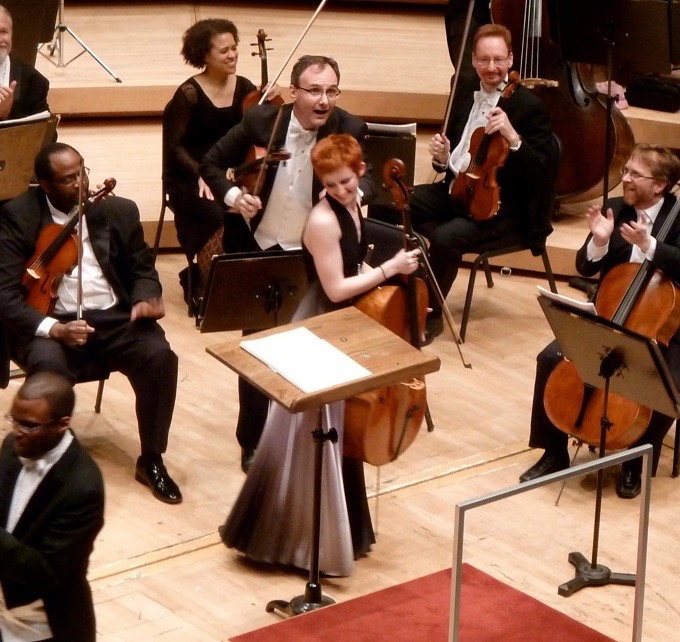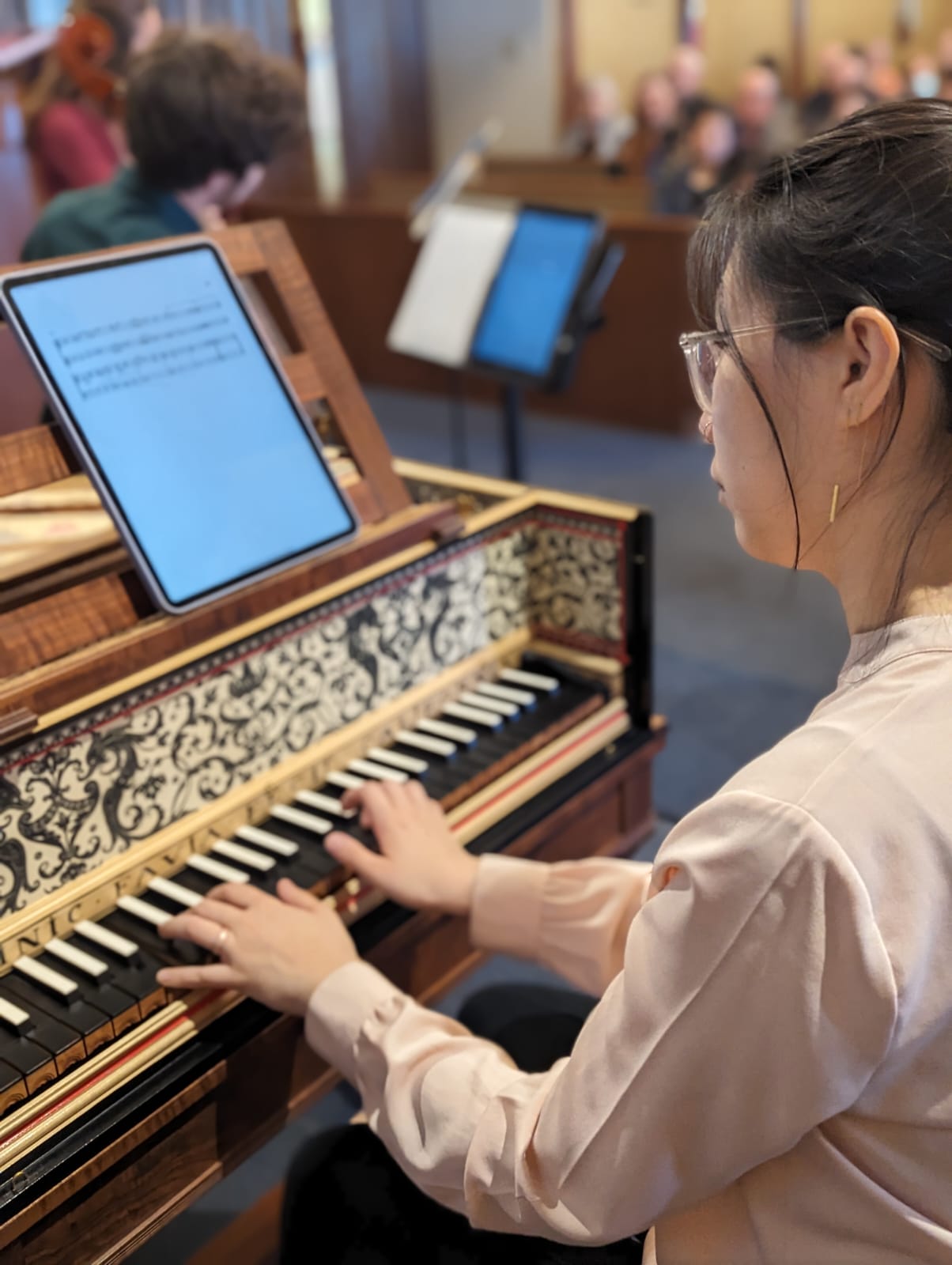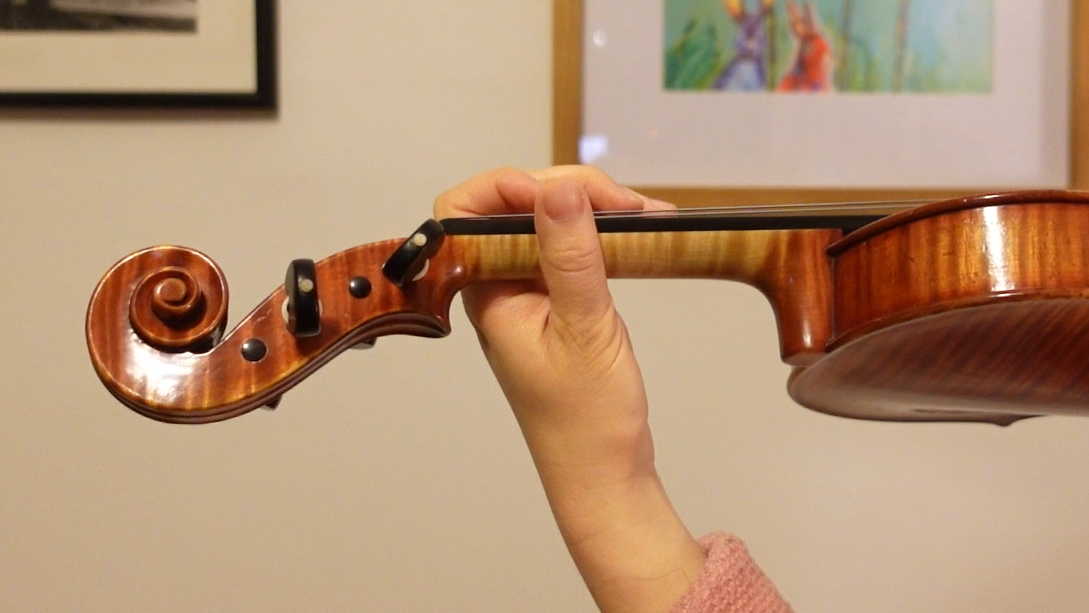If you are a parent of a child who has just started Suzuki lessons, you might have a lot of questions. “How long will we be working on Twinkles?” “Is my child learning faster or slower than other students?” “When will we start learning how to read music?” “Why are we spending so much time on review pieces?” “Do I really have to be here for each lesson?” I want to help you find the answers to these questions by suggesting my five favorite books written specifically for Suzuki parents.
As a Suzuki teacher, I can completely understand the overwhelm that many parents experience as they start to learn alongside their child. This is mainly because parents are expected to play a huge role in the Suzuki method. In fact, the musical success of a child relies heavily on parental involvement. Unsurprisingly, this can be a lot to handle for parents, especially if they have no musical experience of their own. Even after months of lessons, parents may be wondering if their child is on the right track.
Resources from vast world of Suzuki education
I encourage parents to keep lines of communication open with their child’s teacher whenever questions arise. Your Suzuki teacher should be able to offer a concise explanation of the method and what is expected of you as a Suzuki parent. Additionally, supplemental resources can be helpful in explaining the way the Suzuki method works. The world of Suzuki music education is vast, and fortunately, many veteran teachers and parents have published their knowledge in order to support parents who are new to the method. To help simplify your reading list, I’ve selected my top five books for Suzuki parents in the list below.
The following books will answer many common questions about the Suzuki method and help parents to feel more empowered and informed. Whether your child has recently started violin lessons or you’re a long-time Suzuki method enthusiast looking for inspiration, this collection of books for Suzuki parents will surely give you the information you need.
Disclaimer: The purpose of this site is to provide education and resources for violin students, parents, and teachers. The recommendations on this page are independently curated, not sponsored. I use affiliate links whenever possible.
Here is my list of the top five books that I think all Suzuki Parents should read.
1. Nurtured By Love: The Classic Approach To Talent Education by Shinichi Suzuki
Nurtured by Love is the number one book I recommend to all Suzuki parents, students, and violin teachers. It is fascinating to read Dr. Suzuki’s remarkable life story in his own words. Even more fascinating is his simple approach to teaching the violin which inspired a change in music education all over the world. Dr. Suzuki’s life was unusual for his time. He grew up working in his family-owned violin factory in Japan, spent time in Germany with influential figures such as Albert Einstein, and later founded his Talent Education School in war-torn Japan.
In this book, Dr. Suzuki makes his case that talent can be developed through education. Just as all children learn to speak their “Mother Tongue” language, he believed that all children are capable of being taught how to play the violin. Dr. Suzuki shares several humorous and heart-wrenching examples of his students achieving amazing feats, both as violinists and human beings.
Dr. Suzuki was most concerned with shaping children’s characters, not just their skills as violinists. In this way, Nurtured by Love is an inspiring read whether you are musically educated or not. Dr. Suzuki’s philosophies extend beyond playing the violin to self-improvement in all areas of life. Personally, I was very moved the first time I read this book, which is one reason it is first on my list. Moreover, I think it is so important for members of the Suzuki community to read the the first-hand account of how it all started.
2. Helping Parents Practice: Ideas For Making It Easier by Edmund Sprunger
Edmund Sprunger is a veteran Suzuki violin instructor and Suzuki teacher trainer, as well as a trained psychotherapist. In this book, he draws on two decades of experience working with Suzuki parents in his own studio as well as at institutes, workshops, and masterclasses. “Helping Parents Practice” is chock-full of tips for parents to implement during home practice sessions. Mr. Sprunger shares relatable student stories, reframes musical goals and priorities, and offers plenty of practice games and tricks to try.
One of the reasons I like this book is that it offers many behavior-shaping techniques for parents who struggle to get their children to cooperate. It may be reassuring for some parents to know that the biggest obstacle for many Suzuki families is not the parent’s lack of musical knowledge, but rather learning how to navigate the intricacies of parent-child relationships.
While this book is teaming with knowledge and well-researched advice, it is also easy to read and full of good humor. In fact, from the beginning Mr. Sprunger takes the pressure off busy parents by encouraging them to use this book as a reference rather than reading it from cover to cover: “You’re a parent. I know you’re busy.”
3. Beyond The Music Lesson: Habits of Highly Successful Suzuki Families by Christine E. Goodner
If you are feeling overloaded and overwhelmed by the “to-do” list that comes with being a Suzuki parent, take a deep breath and dive into this book. The reason I like this book is that it asks us to shift our focus back to the big picture. Rather than getting caught up in the infinite technical details that go into learning the violin, Ms. Goodner takes a broad view of what it means to be successful, create a positive musical environment, and be a part of the Suzuki community. In this book, she asks and answers the question, “How does the Suzuki method look in modern times, in our lives today?”
Christine Goodner has experienced all sides of the Suzuki Triangle- as a student, parent, and teacher which makes her well positioned to speak to the common issues Suzuki parents face. She wrote this book after realizing years into her teaching that some of her students’ parents were still unclear of what was expected of them. This is the perfect resource for brand-new Suzuki parents as it makes no assumptions about what parents already know about music lesssons. It is a gentle and thorough guide for how your whole family can develop good habits to allow children to achieve their full potential as violinists and human beings.
4. Teaching From The Balance Point: A Guide For Suzuki Parents, Teachers, and Students by Edward Kreitman
In the introduction of this book, Mr. Kreitman writes, “… whether you are an experienced teacher or a new parent taking your first steps on this path, this guide is for you.” Throughout this book the fundamental ingredients of the Suzuki method are laid out clearly, one step at a time. Using the term “priority teaching,” Mr. Kreitman explains how we should not think of learning the violin as a linear pattern. Instead, we should think of learning in layers. (First, we develop a skill, and then continue to practice that skill while adding a new task.)
Using the concept of priority teaching as a guiding light, this book starts with the primary Suzuki skills such as learning by ear versus by rote, developing good posture, practicing review pieces and doing daily listening. The book then delves into more advanced skills such as shifting and vibrato. Keeping priorities in mind, these advanced skills can only be achieved with constant attention and refinement of the primary skills.
Mr. Kreitman is a highly experienced Suzuki teacher and Suzuki teacher trainer, and parents and teachers alike will learn a lot from the anecdotes and wisdom that he shares on these pages. This book is a wonderful resource for any new Suzuki parent, and one that I wish all my students’ parents would have in their libraries.
*Note: this book is difficult to find at a reasonable price on Amazon. Smaller retailers are a better choice for purchasing this book.*
5. A Suzuki Parent’s Diary, Or How I Survived My First 10,000 Twinkles by Carroll Morris
Carroll Morris wrote this book in 1984 about her experience as a Suzuki parent. Her intention was to show the “whole truth” about being a Suzuki mother and to provide an alternative to the idealist portrayal of Suzuki parenting that many advocates of the method tend to give. While Morris credits the Suzuki Method for influencing her family in many positive ways, she also describes struggles with her daughter over practice, the blows to her confidence, the inevitable comparisons of herself to other mothers, and the occasional violin emergencies that arise. Through this book we see how Morris’s relationship with her daughter changes, and how her own life is changed by the level of involvement required of a Suzuki parent.
This book is a quick and often hilarious read, and I highly recommend it to any Suzuki parent. If you’ve ever been frustrated at your child during practice sessions or compared yourself to other Suzuki parents, you’ll find something to relate to in this book. Even though this book was written almost 40 years ago, the family dynamics and life lessons it describes are timeless.
This post is part of a series of blogs I am writing about violin pedagogy. Stay tuned for more recommendations.
How To Do a 180° Career Change As A Classical Musician
As a musician, I’ve had moments of wondering what life would be like to go through a career change. …
What It’s Like To Fulfill Your Parents’ Musical Dreams
With discipline, talent, and passion for orchestral music, 32-year-old cellist Sonia Mantell has alr…
How To Treat Violin-Related Pain and Injuries With Sotai
For violinists who have struggled with playing-related pain despite trying countless remedies, a Jap…
How To Build A Nationally-Recognized Non-Profit Music Ensemble
Starting a non-profit music ensemble is a dream shared by many musicians, but turning that dream int…
How Friendships and Passion Shape A Meaningful Life In Music
Have you ever reflected on the values that guide your career as a musician? Pianist, harpsichordist,…
How To Overcome Left-hand Pain While Playing Violin
Left-hand and arm pain while playing violin is a common challenge for students. As a violin teacher,…










